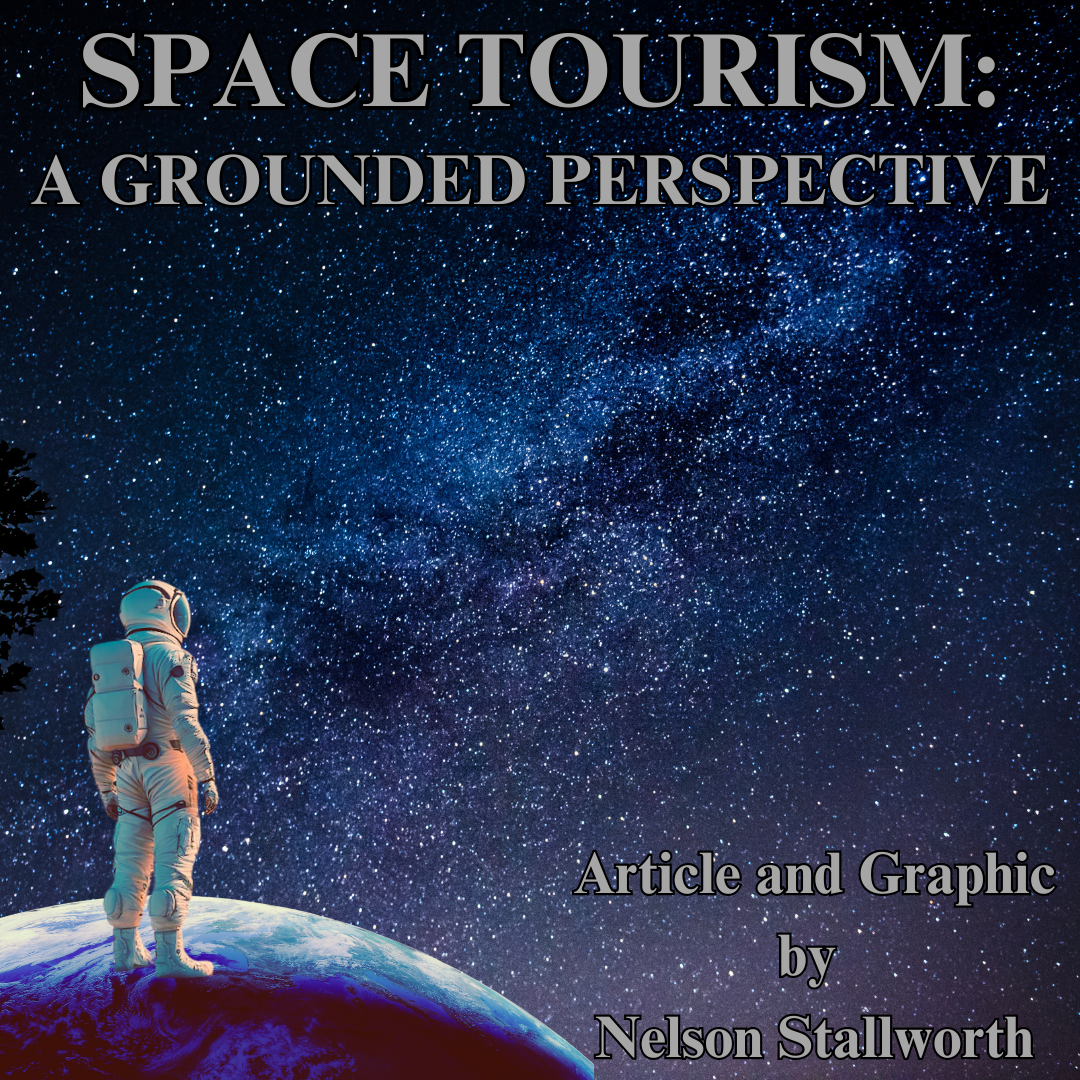For as long as mankind has existed, we’ve been fascinated with the stars. The divine beauty of the infinite has captivated humanity for millennia, and our obsession only strengthens as time goes on. Space is everywhere. It permeates our society, from film to music to news headlines, and with recent developments in the world of space tourism, we may get closer to the cosmos than ever before. However exciting this may seem, opinions are divided over a commercialized expansion into the final frontier, and for good reason. For as many space tourism enthusiasts as there are, just as many balk at the idea of it all. With opinions sharply divided, the question arises: Is the future of mankind written in the stars? Or is it time for all of us to get our heads out of the clouds?
In an era so captivated by space exploration, the concept of space tourism is understandably compelling. Proponents often cite its potential to democratize space, create jobs, and facilitate scientific advancements. And yet, beneath the surface of this exciting dream lie complex ethical, environmental, and financial issues that cannot be ignored. As the discourse surrounding space tourism continues, it becomes increasingly clear that the moral implications of commercial space travel, the environmental impact of regular rocket launches, and the costs associated with these ventures challenge the bedrock on which space tourism stands.
The greatest among the environmental concerns are the pollution rates that arise as a direct result of extensive space travel. According to a study by the National Oceanic and Atmospheric Administration (NOAA), “global rocket launches inject about 1,000 tons of soot into the upper atmosphere per year,” a number that will only expand along with the industry. Granted, space flight is technically a minor contributor to overall atmospheric pollution. However, though the aviation industry as a whole burns quite a bit more fuel annually, soot released from a plane ~7 miles above the ground will precipitate after a few weeks, while soot released into the stratosphere will linger in the air for a few years. In fact, “a single passenger aboard a rocket is,” according to the NOAA’s study, “responsible for 100 times more climate-changing pollution than a passenger aboard an airplane.” The domino effect of these emissions is nothing to sneeze at either; by damaging the ozone layer, the Earth is warmed, which then has the potential to slow subtropical jet streams, thus exacerbating monsoons across India and Africa.
While the environmental implications of space tourism are deeply concerning, so are the significant financial impact these ventures will have on global economies and budgets. Venturing into space is an expensive endeavor. Last year alone, NASA’s budget was a whopping $29 billion, increasing by 3% from the previous year. This money, provided by taxpayers, is being channeled into projects that benefit only a select few wealthy individuals. Limited profitability remains an issue as well; operational costs (maintenance, safety protocols, etc.) are astronomical, and the risks associated with space travel, such as accidents or mission failures, have the potential to result in mammoth financial losses for companies, investors, and governments.
Space tourism will also, perhaps most concerningly, eventually drive the privatization of space. As private companies invest in the industry, a competitive market will thrive. As time passes, the growing influence of private entities will transform the landscape, increasing resource exploitation beyond Earth. Though these circumstances appeal to advocates of market-driven innovation, the idea of entrusting the unexplored realms of the cosmos to private corporations is fraught with ethical concerns regarding the distribution of the universe’s resources. Privatization risks transforming celestial bodies into commodities, likely resulting in conflict over ownership and resource extraction. Moreover, a focus on profit could lead to a higher stake being placed in short-term gains over long-term scientific endeavors, obstructing fundamental research in the name of immediate financial return.
Of course, the most commonly cited gripe with space tourism is the precedence it may take over more pressing Earthly issues. For example, the steep price tag associated with interstellar travel represents billions of dollars that would likely be better used for other purposes, including addressing educational, poverty, and healthcare issues worldwide. In a similar vein, widespread coverage of intergalactic matters may divert public attention away from more immediate terrestrial matters.
Embracing space tourism demands a careful weighing of its potential benefits against its ethical and financial concerns. With rigid regulations, international collaboration, and an emphasis on sustainability, pursuing space tourism could potentially be a gateway to scientific discovery and innovation. Without extensive safeguards, however, the risk of exploitation and environmental damage soars. While space tourism holds promise, it must be pursued responsibly to ensure that our cosmic ambitions truly benefit humanity at large, as well as the Earth we call home.







